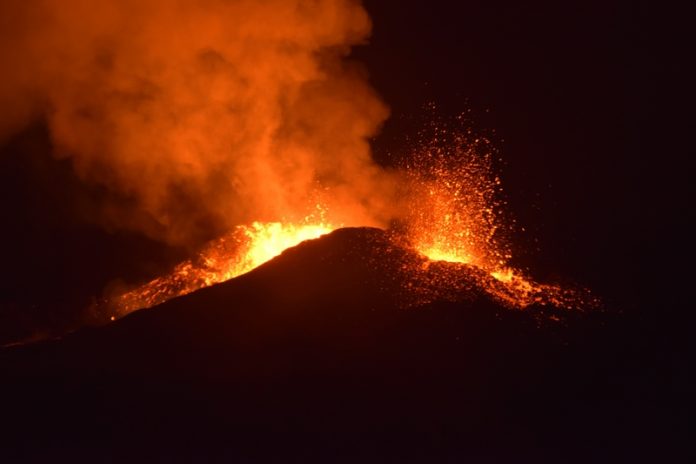Dan Boatright, Chair of the Earth Sciences Teachers Association (ESTA) focuses on earth science education in the UK – from volcanoes to landslides and why geologists today are in demand
As a geology teacher in England, I am repeatedly asked the same question: ‘Isn’t geology just the study of rocks?’ My response is now to ask them for their mobile phone. Within two minutes, they understand why they should think about being a geologist. From the lithium in the battery to the various conductors and electronic components, that mobile phone needs geologists. Some are needed in front of computer screens, using the latest technologies to find potential reserves of minerals, others in the field to find the most accessible mining locations and even more in schools and colleges, enthusing the next generation of earth scientists so that we can continue to be world leaders in this important science.
In England and Wales, we are very fortunate, with students able to study earth sciences as a discrete course at GCSE and A Level (14-19 years old). While it is not available in all educational institutions, there is a strong demand where it is taught. Students are often attracted to the course because of what they have seen in films (The Jurassic Park and World franchise provides a big boost to numbers when released!) and recent events in Hawaii have resulted in large numbers of students wanting to become volcanologists. What is most interesting about this attraction is that it is rarely where the student’s interests remain. Volcanic eruptions, such as the 2010 Eyjafjallajökull, always inspire students to consider the practical implications of living near such a dangerous force of nature, but students often find that the practical considerations closer to home, such as sink-holes, landslides and mineral extraction, are less glamourous but far more lucrative as career opportunities.
Geology GCSE and A Level teaches students all the fundamentals of the subject: how to identify and interpret geological materials – from minerals and rocks to fossils and geological structures – and then how you can use this information to recreate past environments. Students then use this information to discuss the practical and environmental issues of extracting minerals, the geotechnical issues of constructing dams and tunnels, as well as the issues of living in tectonically active environments. These qualifications put students in an ideal position to further their education at university or progress into work-based programmes with engineering companies.
In the UK today, geology offers an interesting and exciting career; in an academic setting, working at the forefront of modern research, working for engineering companies building bridges and sea defences, or ensuring that current and new housing is not at risk of collapsing into a sink-hole or a historical mine shaft. Geology education at school and college provides an important portal into university education and has become integral to ensuring more people enter this profession. There are, however, opportunities to expand geological education in the UK, with Scotland lacking any earth science education before university and there are plenty of locations within England and Wales, particularly within inner cities, where geology is not yet taught. This has become the priority of the Earth Science Teachers Association (ESTA), universities and the Geological Association of London, to ensure that earth science education is available to all students across the UK today.
Dan Boatright
Chair
The Earth Sciences Teachers Association (ESTA)











